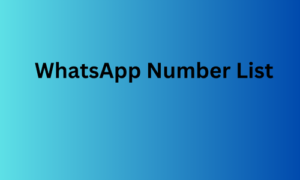The Future is Two Steps Away: Decentralized Social Networks
Posted: Sun Dec 15, 2024 9:33 am
Current Web2-based social networks have serious limitations for their users. In the near future, social networks will be built on open source and open state systems. Where will this lead?
The Bitcoin blockchain is arguably the most secure and reliable blockchain in existence. The very security that breeds trust also has a downside; transactions between parties are very slow. This is where the Lightning Network comes in.
The Lightning Network is a second layer in the Bitcoin blockchain that allows microtransactions or micropayments to be made between parties almost instantly by moving these transactions off-chain and removing any middleman.
What does this mean in the context of the Internet, creators, and social media? Decentralized social media is changing the way creators and audiences communicate.
Justin Rezvani realized that content creators could use the Lightning Network to directly monetize their fans’ attention, without the need for a third-party social network. In August 2021, he used the Zion protocol to launch Zion v1. Zion v1 is a communications engine that runs on software you download and that allows you to use a Lightning node to create your own social network, send messages, and store your data.
Zion is using Web5 technology to soon launch the second whatsapp number list version of its app, with a completely new infrastructure that reuses the building blocks standard for building any internet app: authentication, data storage and messaging, as well as electronic money and payments.
Zion v2 enables each of these building blocks to be used in new ways for the Internet without a blockchain or token, so everything we know about social media is about to change.
Modern Web2-based social networks have serious limitations for their users.
First, centralization means that users (whether consumers, content creators , or brands) do not own their profiles, content, audiences, or data. In fact, the ad-based business model of these networks is based on selling data to brands and companies that will pay to have their messages featured in front of users. If you don’t like it, you can leave, but you can’t take your content, data, or audience with you.
Secondly, because the code for these social networks is closed, you cannot change the way your content is delivered to your followers, nor can you manipulate or change the algorithm. You have no control over anything.

In Web3, social networks are built on open-source systems. Anyone can modify it for their own use case. WordPress is a widely used open-source code that is often modified to create unique sites. Decentralizing social networks will allow anyone to read and write on the real system.
Right now, identity — how you log into a platform or network — is centralized to the platform you're logged into. But what happens if the platform you've built a community on shuts down? Or if you decide to leave TikTok , for example ? Then you lose everything you've built on that platform.
The Bitcoin blockchain is arguably the most secure and reliable blockchain in existence. The very security that breeds trust also has a downside; transactions between parties are very slow. This is where the Lightning Network comes in.
The Lightning Network is a second layer in the Bitcoin blockchain that allows microtransactions or micropayments to be made between parties almost instantly by moving these transactions off-chain and removing any middleman.
What does this mean in the context of the Internet, creators, and social media? Decentralized social media is changing the way creators and audiences communicate.
Justin Rezvani realized that content creators could use the Lightning Network to directly monetize their fans’ attention, without the need for a third-party social network. In August 2021, he used the Zion protocol to launch Zion v1. Zion v1 is a communications engine that runs on software you download and that allows you to use a Lightning node to create your own social network, send messages, and store your data.
Zion is using Web5 technology to soon launch the second whatsapp number list version of its app, with a completely new infrastructure that reuses the building blocks standard for building any internet app: authentication, data storage and messaging, as well as electronic money and payments.
Zion v2 enables each of these building blocks to be used in new ways for the Internet without a blockchain or token, so everything we know about social media is about to change.
Modern Web2-based social networks have serious limitations for their users.
First, centralization means that users (whether consumers, content creators , or brands) do not own their profiles, content, audiences, or data. In fact, the ad-based business model of these networks is based on selling data to brands and companies that will pay to have their messages featured in front of users. If you don’t like it, you can leave, but you can’t take your content, data, or audience with you.
Secondly, because the code for these social networks is closed, you cannot change the way your content is delivered to your followers, nor can you manipulate or change the algorithm. You have no control over anything.

In Web3, social networks are built on open-source systems. Anyone can modify it for their own use case. WordPress is a widely used open-source code that is often modified to create unique sites. Decentralizing social networks will allow anyone to read and write on the real system.
Right now, identity — how you log into a platform or network — is centralized to the platform you're logged into. But what happens if the platform you've built a community on shuts down? Or if you decide to leave TikTok , for example ? Then you lose everything you've built on that platform.